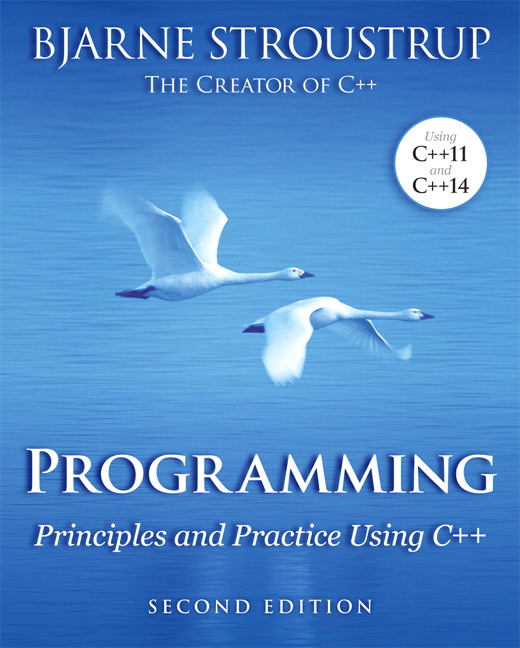N3992: Agenda and Meeting Notice for WG21 Telecon Meeting -- Herb Sutter
A new WG21 paper is available. A copy is linked below, and the paper will also appear in the next normal WG21 mailing. If you are not a committee member, please use the comments section below or the std-proposals forum for public discussion.
Document number: N3992
Date: 2014-05-12
Agenda and Meeting Notice for WG21 Telecon Meeting
by Herb Sutter

 At InformIT:
At InformIT: More rapid-fire "now write this using lambdas" problem-solution drill with Sumant Tambe:
More rapid-fire "now write this using lambdas" problem-solution drill with Sumant Tambe:
 Still on the theme of "contiguous enables fast," a followup on the recent "Fast Polymorphic Collections" article:
Still on the theme of "contiguous enables fast," a followup on the recent "Fast Polymorphic Collections" article:
 Stroustrup's introduction to programming book has now been updated for modern C++. The Preface was posted on InformIT:
Stroustrup's introduction to programming book has now been updated for modern C++. The Preface was posted on InformIT: Note that the article doesn't mention
Note that the article doesn't mention